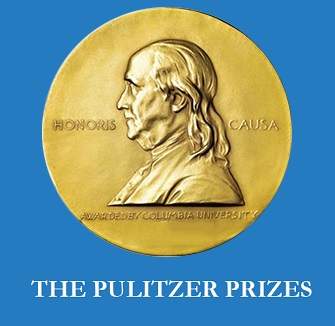Pulitzers go to Reuters, New York Times for reports on policing, COVID-19
The Star Tribune won the Pulitzer Prize for breaking news reporting for what the board called its "urgent, authoritative and nuanced" coverage of the murder of George Floyd at the hands of the police last May, while Reuters and the Atlantic shared the award for explanatory reporting. The Pulitzer Prizes https://www.pulitzer.org/article/2021-pulitzer-prize-announcement are the most prestigious awards in American journalism and have been handed out since 1917, when newspaper publisher Joseph Pulitzer established them in a bequest to New York's Columbia University in his will.

Pulitzer Prizes were awarded to Reuters, the New York Times, the Atlantic, and the Minneapolis Star Tribune on Friday for their coverage of the COVID-19 pandemic and racial inequities in U.S. policing, topics that dominated the ceremony. The Star Tribune won the Pulitzer Prize for breaking news reporting for what the board called its "urgent, authoritative and nuanced" coverage of the murder of George Floyd at the hands of the police last May, while Reuters and the Atlantic shared the award for explanatory reporting.
The Pulitzer Prizes https://www.pulitzer.org/article/2021-pulitzer-prize-announcement are the most prestigious awards in American journalism and have been handed out since 1917, when newspaper publisher Joseph Pulitzer established them in a bequest to New York's Columbia University in his will. In 2020, "the nation's news organizations faced the complexity of sequentially covering a global pandemic, a racial reckoning and a bitterly contested presidential election," Mindy Marques, co-chair of the Pulitzer Board, said at the announcement ceremony, which was broadcast online.
The board cited Reuters reporters Andrew Chung, Lawrence Hurley, Andrea Januta, Jaimi Dowdell and Jackie Botts for their "pioneering data analysis" that showed https://www.reuters.com/investigates/section/usa-police-immunity how an obscure legal doctrine of 'qualified immunity' shielded police who use excessive force from prosecution. They shared the explanatory reporting award with The Atlantic's Ed Yong, who was praised by the board for "a series of lucid, definitive pieces on the COVID-19 pandemic."
Many of the prizes went for coverage of policing and the global protest movement that erupted after Floyd's killing: the Associated Press won the breaking news photography award for its images of the protests, while Robert Greene of the Los Angeles Times won for editorial writing for his work on bail reform and prisons. The board also said it was awarding a "special citation" to Darnella Frazier, the teenaged bystander who recorded video of Floyd's murder on her cellphone, which it said highlighted "the crucial role of citizens in journalists' quest for truth and justice."
The New York Times won the public service journalism prize for its "prescient and sweeping coverage of the coronavirus pandemic." The Boston Globe won for investigative reporting for uncovering a systematic failure by state governments to share information about dangerous truck drivers that could have kept them off the road. Friday's announcement of the prizes, most worth $15,000 each, had been postponed from April amid the pandemic. The awards luncheon, which normally takes place soon after at Columbia University, has been postponed until autumn.
The Pulitzer Board also recognizes achievements in the arts, and awarded its fiction prize to Louise Erdrich for her novel "The Night Watchman" about an effort to displace Native American tribes in the 1950s.
(This story has not been edited by Devdiscourse staff and is auto-generated from a syndicated feed.)
- READ MORE ON:
- Andrea
- The New York Times
- Native American
- Pulitzer Prize
- The Boston Globe
- American
- New York Times
- New York's
- Pulitzer Prizes
- Columbia University
- Louise Erdrich
- Darnella Frazier
- The Night Watchman
- George Floyd
- The Star Tribune
- Ed Yong
- Floyd
- Atlantic
- Minneapolis Star Tribune
- Associated Press










